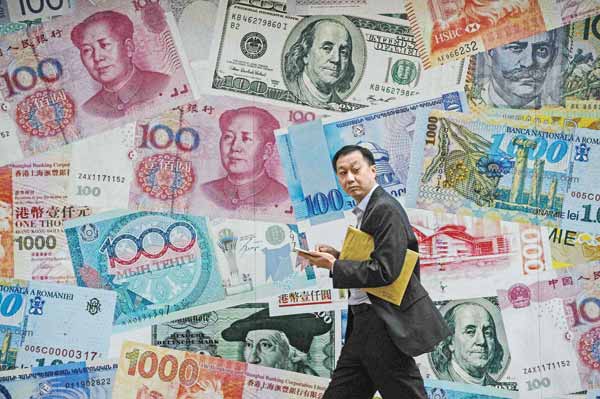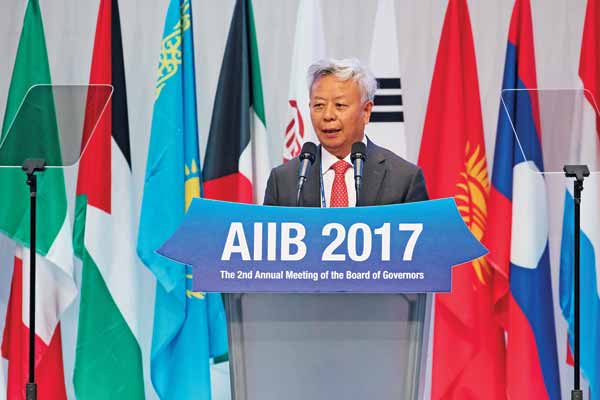Financial stability key topic at G20
 |
|
A man walks past a display in Hong Kong showing many of the world’s currencies. [Photo/Agencies] |
The establishment of the Asian Infrastructure Investment Bank and renminbi internationalization are two of China's key economic achievements, analysts said ahead of this week's G20 summit in Hamburg.
With experience gained from cushioning the negative impacts of the global financial crisis since 2008, China's growing economic strength and its macroeconomic coordinating capability makes it a natural leader in such discussions, particularly at a time of unprecedented cross-border capital flows, they said.
Ricco Zhang, director of Asia Pacific at Zurich-based International Capital Market Association, said: "Participating in creating coherent international financial market practices will help China play its role to another level."
Financial stability has been a hot topic at G20 meetings since the 2008 financial crisis demonstrated how instability in developed markets can affect other economies.
Erik Berglof, director of the London School of Economics' Institute of Global Affairs, said: "A global approach is important as it puts pressure on national regulators and helps override resistance in the financial sector."
Last year, G20 leaders in Hangzhou discussed measures to improve financial stability. They agreed to adopt stronger international regulations, including Basel III banking capital requirements and stronger regulations on derivatives.
Financial stability is again a key topic at Hamburg's G20. This year, discussions will take place on the role of multinational development banks such as the AIIB in financing sustainable infrastructure projects.
Wang Cong, a professor of finance at the China Europe International Business School, said: "The AIIB's creation and increasing influence may put pressure on existing organizations like the IMF and World Bank to make changes to their roles in supporting the regulatory landscapes of emerging economies."
The AIIB was established last year with 57 founding shareholders and it has already approved lending of more than $2 billion. Central to the AIIB's ideology is a "clean, lean and green" focus, to reduce internal bureaucracy and strengthen sustainability of investments.
Wang said the renminbi's growth toward international reserve currency status is another way China is making a big contribution to global financial stability, as the growing international use of renminbi will help many countries reduce reliance on the US dollar.
Renminbi internationalization gained momentum after the International Monetary Fund added the renminbi to its basket of currencies with special drawing rights. As an endorsement of the renminbi's reserve currency status, the Frankfurt-based European Central Bank announced its investment of 500 million euros ($568 million) of reserves into renminbi-denominated assets in January.
Zhang said the renminbi is set to play an even bigger role in financing infrastructure projects in economies covered by the Belt and Road Initiative.
"Many of these projects will be financed in renminbi, mostly through the issuance of dim sum bonds and panda bonds, therefore China's involvement in international efforts to create consistent regulatory frameworks is pivotal," he said.
 |
|
Jin Liqun, president of the AIIB, speaks at the start of the AIIB’s annual meeting in South Korea in June. [Photo/Agencies] |






















